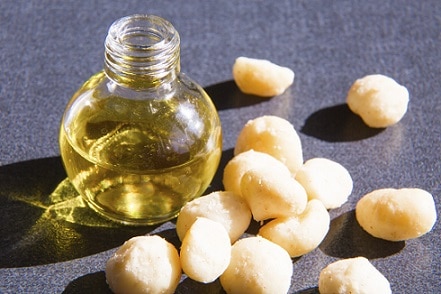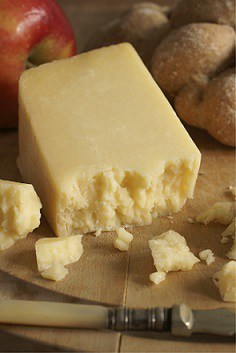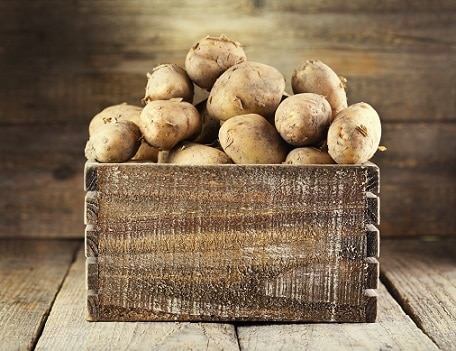 Magnesium is not a mineral you’ll hear dermatologists talk about much, nor amateur acne gurus on the internet. That’s at their peril, because magnesium is in a class of its own when it comes to its sheer variety of benefits in the body.
Magnesium is not a mineral you’ll hear dermatologists talk about much, nor amateur acne gurus on the internet. That’s at their peril, because magnesium is in a class of its own when it comes to its sheer variety of benefits in the body.
Magnesium is the vitamin D of minerals. As of 2012, researchers have identified 3751 different magnesium receptors in human proteins.
Magnesium is the fourth most abundant mineral in humans. Magnesium even funnels more energy to your bodily cells, through enhancing the creation of the molecule adenosine triphosphate. Researchers have observed positive results of magnesium on migraines, aging, fibromyalgia, cardiovascular disease, and overall mortality.
Magnesium improves many root problems behind acne
 It is inevitable that a nutrient with such far reaching benefits will also improve your acne, and magnesium does that in earnest:
It is inevitable that a nutrient with such far reaching benefits will also improve your acne, and magnesium does that in earnest:
Enhanced sleeping power – the one place magnesium does hold in the public’s hearts is as the “relaxation mineral”, which is fully justified. Study after study has demonstrated that magnesium deficient people have trouble falling asleep.
One study analysed the sleep quality and serum hormone levels of 300 elderly people, and found big correlations between magnesium deficiencies and sleep deprivation. The explanation? The study also found much lower levels of melatonin, your sleep hormone.
Read Annihilate Your Acne – get the greatest diet ever for clear and radiant skin
Magnesium is critical for manufacturing melatonin because melatonin is biosynthesised from serotonin, which magnesium is a vital precursor to. Magnesium’s cortisol lowering effects will also allow for more relaxed sleep, as cortisol inhibits certain sleep-inducing neurotransmitters.
The relevance for acne? Sleep deprivation can worsen several acne-related conditions such as stress and insulin resistance.
Regulated cortisol levels – There’s a fitness strategy increasingly used by both athletes and elderly people, the strategy of bathing in water filled with magnesium flakes. Why? Because similarly to vitamin C, your body employs magnesium to reduce and control excessive amounts of stress hormones in your bloodstream.
For instance, whenever you drink coffee and have your cortisol inevitably jacked up by the caffeine, your kidneys will release a burst of magnesium to compensate. Thus, consuming more magnesium is a fantastic tool for sorting out chronic stress and acne.
Improved insulin resistance – at least five studies have demonstrated a link between magnesium deficiency and insulin resistance.
Magnesium forms a key component of tyrosine kinase, an enzyme that turns cellular functions throughout your body on and off. One cell function within this enzyme’s jurisdiction is the detection of insulin by your glycogen stores.
Next: the 6 vitamins and minerals which can massively reduce acne
Therefore, you can decrease insulin in your bloodstream by increasing magnesium to at least normal levels.
Accelerated antioxidant production – magnesium is known to increase the formation of glutathione in your body. Magnesium is one of glutathione’s four ingredients, but one of the others is adenosine triphosphate, which magnesium is needed to produce in the first place.
Both gluthathione deficiency and magnesium deficiency are clearly connected to free radical overload. This even makes magnesium excellent at eliminating the heavy metal mercury, because glutathione is one of the few antioxidants that can neutralise it.
Magnesium is an overlooked acne nutrient
 Unlike vitamin A or vitamin E, magnesium is extremely adept at curing your acne through indirect means. Magnesium affects so many different functions in the human body that there are almost certainly more advantages for acne.
Unlike vitamin A or vitamin E, magnesium is extremely adept at curing your acne through indirect means. Magnesium affects so many different functions in the human body that there are almost certainly more advantages for acne.
Consider the sheer wideness of magnesium deficiency these days. As much as 80% of Americans consume below the recommended daily allowance of 400mg per day, and 20% consume less than half of that.
Magnesium deficiency is at such high levels worldwide that even the World Health Organisation is concerned, and are advising governments to add magnesium to drinking water.
Why bread and pasta are a massive cause of acne
There’s an excellent chance that you will see good results by bringing your daily magnesium intake up to 400mg or higher. Are you suffering from sleep deprivation, or stress so chronic that you can’t relax it away? If so, then magnesium will be especially useful for you.
There’s a big but though: an acne patient can’t simply focus on magnesium rich foods. The modern pandemic of magnesium deficiency is partly due to vastly reduced levels of it in plant foods. Traditionally, you could obtain your daily requirements from fruits and vegetables, but analysis of many green vegetables and berries shows that since 1950, total magnesium content has dropped by between 25-80%. That is a colossal drop and it’s mainly due to the poor state of our soils. A range of nutrients are slowly vanishing, most notoriously including vitamin C.
Years and years of farming have steadily sucked all the acne minerals out of the earth. One hundred years ago, farmers understood the importance of soil for nutrition and they replenished with manure, old plant matter and so on.
Today those strategies have mostly been abandoned. There’s been a seismic shift from local farmers to large corporations who do not use traditional farming techniques. Meanwhile, the world population grows, more food must be grown, and the rate of soil decline accelerates.
The result? It’s reported that every semi-developed country in the world has depleted magnesium in soils, with the sole exception of Egypt.
You only have to look at a soil map of the USA to see the effects of farming; eastern states have as low as 10% of the magnesium of the more recently farmed West. Florida and the south-east are almost completely depleted.
Furthermore, the content of magnesium in water has experienced similar declines; hence the concern of the World Health Organisation. Finally, all magnesium in food must first be processed and absorbed by your gut. Roughly 50% is absorbed into capillaries in your small intestine while a further 5% is absorbed by the large intestine. A healthy gut is particularly important for extracting enough magnesium when compared to other nutrients.
The 7 greatest topical treatments for naturally clear skin
Dietary factors such as fermentable fiber and protein intake can boost the rate of absorption of magnesium, but having a leaky gut can severely impede it. What’s one of the biggest problems acne patients have? A leaky gut.
For those three reasons, you will almost certainly fail to achieve magnesium levels adequate for acne by focussing on food, at least in the early days of your acne quest.
After several months on an acne-friendly diet free from grains and harmful chemicals, your gut function will have improved. You will be able to achieve a healthy magnesium level by consuming nutritious fruits, vegetables and nuts each day. However you don’t want to wait that long. You want to push your acne strategy to the limits of human biology, NOW…
The greatest magnesium supplement for acne
 …and there’s an excellent solution: transdermal magnesium oil.
…and there’s an excellent solution: transdermal magnesium oil.
“Magnesium oil” is actually not an oil at all; it is a highly concentrated liquid solution of magnesium chloride. Spray some onto your body and your skin will absorb it directly into your bloodstream. This process is extremely efficient; that’s why many athletes love to put magnesium flakes in their baths.
The best part is that your gut is bypassed and becomes irrelevant. Magnesium oil is thus an excellent way to obtain the RDA in the early months of your acne-clearing journey. Some of the language used, such as “ancient sea of Zechstein” and “magnesium millions of years in the making” are highly indicative of a scam.
However I’ve been using the Ancient Minerals Magnesium Oil (amazon link) brand of magnesium oil for many months now and I’ve noticed improvements in many areas associated with deficiency.
My muscles are more relaxed, I fall asleep like I’ve been knocked out and I’ve also noticed an overall increase in strength and power. For a couple of years I used to suffer from random episodes of shortness of breath, but these disappeared forever after using the oil.
Therefore, I firmly recommend magnesium oil. Again, the best option is Ancient Minerals Magnesium Oil (link above).
You should take 400mg of magnesium in spray form until you are sure your gut has healed. Also note that from my experience, magnesium is most effectively absorbed by the front torso; your chest, stomach, your rib-cage, and the fronts of your shoulders.
A common reaction to magnesium oil is a burning sensation and a red rash on the skin. However that’s a natural reaction when your body is deficient. These symptoms will eventually subside and you’ll also be blessed with a sign that your levels have been restored.
Be careful with bargain basement grocery store pills
Firstly, they have the same problem as zinc where producers use the cheapest and most ineffective form. Magnesium oxide is the favourite but it has a sub-12% absorption rate in the human gut.
Secondly, many of the higher quality supplements also contain calcium to balance the magnesium out. The manufacturers are actually being very thoughtful since having the wrong ratio of calcium to magnesium in the body is known to dampen the benefits of both. However almost every company provides the incorrect ratio, due to one single mistranslation of a French scientist many years ago. He was discussing how too much calcium can overwhelm the benefits of magnesium and commented that a human’s ratio should never exceed 2:1.
However, he was fatefully mistranslated as recommending this as the ideal. Now many supplement companies calculate their ingredients from what was a simple misunderstanding in the first place.
Vitamin D – the greatest nutrient for a bright and glowing skin tone
Studies have shown that the best calcium to magnesium ratio is actually 1:1. Since you can get the calcium you need from your diet, you don’t want to mess with your ratio by unknowingly consuming extra hidden in supplements.
As for the quantities, the ideal intake for both minerals is approximately 800mg. You won’t have trouble with calcium, but with the depleted states of our soils and water, you should both supplement with magnesium and calculate an excellent diet for obtaining it. In fact, while magnesium is not the single most important acne mineral, its scarcity on the modern planet Earth means that it’s the one you have to put the most effort into obtaining.
Even once your gut has healed and food becomes a better option, it’s still best to take 400mg of magnesium. Transdermal oil is the king of kings. However if you can’t buy the product, or have neither the time nor desire to slather oil all over your body, then magnesium glycinate is a well absorbed pill form.
A more recent creation is magnesium threonine, which is touted as having a superior ability to penetrate your gut’s mitochondrial membrane. Both of these supplements are chelated, which is doubly important for magnesium due to its heightened vulnerability to calcium. There are also numerous magnesium citrate drinks on the market. I’ve used these before and they are pretty well absorbed, but watch out for the stevia and other additives they often contain.
If you do want to take a more convenient pill, my top recommendation is this Pure Encapsulations Magnesium Glycinate (amazon link).
Your food strategy
 Additionally, you should fill your diet with green vegetables such as kale, and nutritionally dense nuts. Fruits like berries and bananas are good magnesium sources as well.
Additionally, you should fill your diet with green vegetables such as kale, and nutritionally dense nuts. Fruits like berries and bananas are good magnesium sources as well.
Possibly the best food source is the macadamia nut, which combines the dense magnesium content of other nuts with only small quantities of phyctic acid. Fish is also terrific and acne-friendly in other ways. A typical 200 gram serving of mackerel can provide 38% of your magnesium requirements, and his oily cousins such as Pollack are nearly as good. Don’t waste your time on whole grains; the high phyctic acid content makes them a dead end source.
There’s one excellent and highly overlooked strategy: drinking mineral water.
It’s believed that prehistoric man obtained a huge chunk of his dietary magnesium by drinking from wild rivers and streams. Nowadays our water is quite depleted, but more nutritious water is still on the market.
Drinking 2 liters of bottled mineral water every day can provide roughly 10% of your daily allowance. If you don’t have the money, then you can still get enough elsewhere, but if you do then this is an effortless way to crank your levels up.
Important knowledge – why common vegetable oils are pure evil for acne
Beef, lamb, chicken, eggs, and many generally nutritious foods all contain decent levels of magnesium that can add up rapidly. A typical acne-friendly diet is already magnesium friendly, if given a few tweaks to make room for the super-sources.
You should be able to reach 400mg through food and drink and combine that with a 400mg supplement to reach the ideal level. Your gut will not allow full absorption from food initially, but you should eat the richest foods nevertheless.
You can further maximise the absorption of magnesium by…
Avoiding fluoride – this neurotoxin has been shown to bind to magnesium and rob it from your cells. Seeing as fluoride is in most toothpaste brands, this is potentially a factor behind the magnesium deficiency pandemic.
Correcting vitamin D deficiency – the potency of magnesium increases dramatically as vitamin D levels rise. Luckily, supplementing with vitamin D is a recommended acne strategy anyway.
Saying no to diuretics – blood pressure lowering medications actually lead to a flood of magnesium exiting your body. The irony is that without magnesium, your blood vessels constrict, and your blood pressure gets squeezed up further. Your doctor prescribes fresh diuretics, more magnesium is excreted; on goes the cycle.
The clear strategy is to avoid high blood pressure in the first place. Most doctors just hammer home the message that salt is the villain without addressing any of the bigger factors. To start with, you can resolve high blood pressure by eating more magnesium. You can avoid it by rejecting processed grains, vegetable oils and sugars.
Foods such as potatoes, bananas, and sweet potatoes are great for blood pressure because of the high potassium content, which directly counteracts the blood pressure raising effects of sodium. High blood pressure is a far simpler problem than many people realise.
Conclusion
Magnesium is important for treating sleep deprivation, chronic stress, and insulin resistance. Taking a supplement is very important, as is maximising your intake from foods.
The clearest sign that your efforts are paying off is an all-round feeling of relaxation. Magnesium relaxes the muscles while calcium constricts them. A relaxed and unstressed mind is also encouraging. If you sleep like a baby and never worry about anything then you are right where you need to be.
NEXT: the ultimate diet for clearing acne permanently
Thanks for reading!